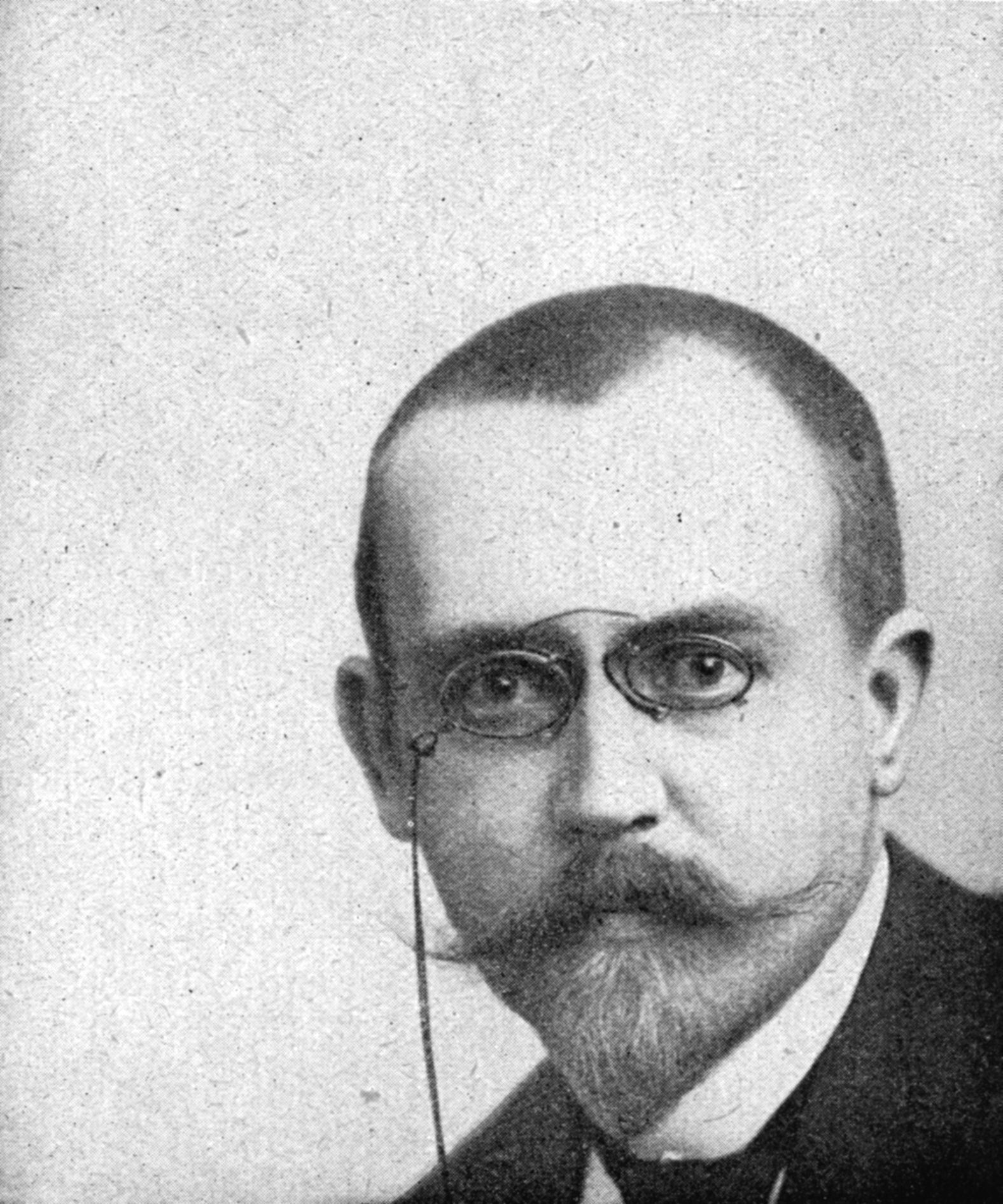
Zapanjujuće dobar novi književni časopis.
Kad netko prevodi Paula Scheerbarta, znači da ima satenski ukus.
www.buenosairesreview.org/fiction/
The Buenos Aires Review presents the best and latest work by emerging and established writers from the Americas, in both Spanish and English. We value translation and conversation. We publish poetry, fiction, essays, criticism, visual art, and interviews.
We’re bilingual. And we’re passionate about the art and craft that allows us to be, so we provide a dedicated space for translators to discuss their recent projects.
We’re digital. Because we won’t be limited by traditional distribution channels that, for fiscal or physical reasons, impede cultural exchange just as often as they foster it.
But we still love digging around in the stacks. And we’re happy to tell you all about the independent bookstores we adore.
Coming soon: our online booktique offering dossiers on our favorite writers and ideas, and a carefully curated library of longer works in translation, as well as special guest appearances by other languages, including Portuguese, in the magazine.
Founding Editors
Heather Cleary
Jennifer Croft
Pola Oloixarac
Maxine Swann
Heather Cleary
Jennifer Croft
Pola Oloixarac
Maxine Swann
Associate Editors
Martín Felipe Castagnet
Milton Läufer
Lucas Mertehikian
Martín Felipe Castagnet
Milton Läufer
Lucas Mertehikian
Contributing Editors
Russell Scott Valentino
Russell Scott Valentino
Website
Milton Läufer
Inés Sotomayor
Milton Läufer
Inés Sotomayor
Counsel
David J. Bright
David J. Bright
Black Ball
Mario Bellatin
translated by Andrea Rosenberg
1- BLACK BALL RELOADED
Author’s first look at the bande dessinée Black BallYesterday I received some information about the Czech writer Bohumil Hrabal.... Read More »
The Prouf is in the Vermouf
James Warner
The first account our agency landed was a fortified wine called
Clouf. Roland slammed a bottle on my desk and told me to think... Read More »
The Tall Trees: A Juno Novelette
Paul Scheerbart
translated by Joel Morris
The tall trees groped more and more intensely in the air with their long branch arms and could not... Read More »
The tall trees groped more and more intensely in the air with their long branch arms and could not calm themselves down; they wanted to know for certain what they once were, back when they did not yet have branches.
The asteroid Juno was a thick round disc. It resembled an earthly pancake. The diameter of this pancake measured no more than 200 kilometers; it was at most five kilometers thick, but it was only that thick in the middle—towards the edges it became thinner and thinner.
The only inhabitants of Juno were immensely tall tree creatures, whose roots entwined together in the middle of the planet. The trees reached extremely high up into the ether—in the middle nearly a hundred kilometers high—just as much on one side of the pancake as on the other. But towards the edges of the pancake the trees grew smaller, so that when seen from a distance the entire planet gave the impression of being a sphere.
The tree creatures’ branches were not as hard as the branches of trees on Earth. The Junoians were able to move their branch-appendages easily in every direction, as if they were rattlesnakes. Many moveable little snake-limbs protruded from the trunks and in place of leaves and blossoms, the tips of the branches had very complex tactile organs, with which the Junoians perceived an indescribable number of things in the air and ether—even things very far away—so that earthly eyes and ears were not lacking on Juno.
Naturally one did not hear clear sounds whenever the Junoians spoke with one another; if an ear had been present, it would have only heard a quiet crackling beneath the tree bark. Nevertheless, on Juno everyone communicated very quickly and without trouble.
Often enormous balloons would form, whenever the Junoians wanted, in the tree-giants’ upper boughs. They looked like blossoms, and in a few seconds they quickly lifted the bough up high, often many kilometers.
The balloons glowed as though lit inside by an electric light, but the Junoians could not see this glow, since they didn’t have any eyes.
The thinking organs were set in the roots of the tree-giants, and with these thinking organs—which processed indescribably complex tactile impressions—the Junoians constantly reflected on their past. They were firmly convinced that they had once led a completely different life. But as much as they groped, searchingly, in the air, they could not remember that other life.
*
Apart from their tactile organs, in the Junoians’ tree bark
were numerous pores that also had the characteristics of organs and
resembled earthly animal noses. Most Junoians did not concern themselves
with their pore-noses. Only the two tallest Junoians, who could stretch
their appendages nearly a hundred kilometers high in the middle of the
planet, exercised their pore-noses. And so one day the tall Junoian in
the middle said to the one below him on the other side of the planet who
also stretched a hundred kilometers high: “My dear antipode, if I just think about my pore-noses and forget for a moment the organs of touch in the fingertips of my branches, it is as though my ability to remember has been utterly transformed.”
The antipode said that the same thing happened to him.
And there was a crackling under their tree barks.
And the other Junoians marveled at the lively conversation in the middle of the planet.
And then both antipodes in the middle of Juno suddenly sensed an intense smell, one that reminded them of something old—something ancient. They didn’t immediately know what it was, but they spoke to each other more and more intensely until finally one of the antipodes said in his quiet crackle-language—crackling in the bark of his roots and palpable throughout the whole of Juno and for each Junoian—“Antipode, I smell roasting meat in my pore-noses!”
“Me too! Me too!” said the antipode.
And all the Junoians drew their snaking branch arms near to the planet’s middle, so that the planet suddenly took the form of a pair of flower bouquets—a cone up top and down below. The edge of Juno stood empty like a cuff.
“The smell of roasting meat!” resonated through all the tree barks.
And it crackled loudly everywhere.
“What could it possibly mean?” asked the smaller Junoians, who did not live far from the edge and were used to reaching over the edge to the other side of the planet with their snaking appendages.
“The smell of roasting meat!” both antipodes in the middle said once more quite clearly. And the other Junoians opened all of their pore-noses and after a while said again, “The smell of roasting meat!”
Then there ensued such a lively conversation that for hours no one could understand his own words (of course no words were actually “spoken” in the earthly sense). The reminiscences of the Junoians had suddenly taken an entirely new direction. And the entire planet became more and more lively—all of the balloons glowed like colorful flowers so that now both the planet’s cones truly looked like two giant bouquets of flowers.
And finally one of the middle antipodes said in summation: “Indeed, my dear friends, we have finally discovered it: we were once beings who were furnished with a so-called ‘mouth.’ And with this mouth we once ate things that we called ‘roast meat.’ We also know what these roasts were: they were other beings that we roasted with fire! We once used to eat one another!”
A general crackling of “Ohs” and “Ahs” followed this speech, and all of the Junoians bent themselves towards the edges, so that the planet no longer resembled two flower bouquets.
*
The antipodes in the middle jutted high up into the air,
entirely alone; the other inhabitants of Juno had withdrawn from them.
Then they all heard the voice of the second antipode, who said loudly
and clearly, “My dear friends, the story is not so simple. Each
tree-giant once represented an entire people. We consist of an
indescribable number of smaller, even miniscule beings who at times
confronted each other, full of fury and hate. And now and then it came
to the smell of roasting meat. But now we see that these little peoples
all live together unified in us, and that it no longer means anything to
us that our little beings once feuded and at times even ate one
another. Now all of these little ones are peacefully unified within us,
and we are completely justified in seeing our former life as a little
joke.”After this an entirely new crackling could be heard on Juno, one that sounded like an earthly laughing.
And the Junoians on the edges said, “Our lives were once a little joke. It is utterly regrettable that we have not yet made our present life into a big joke.”
“Oh,” came a resounding from the middle. “That’s something we can make up for.”
And they made up for it in the following way: They recalled their former lives more and more clearly, in which they represented great multitudes of people, and their life back then—with all its savagery and opposition—seemed silly to all of them. And on Juno they could not allay the thought that they had once taken that entire life—with all of its brawling, zeal, and smells of roasting meat—so seriously.
“But do we not also keep taking our present life as tree-giants whose roots are harmoniously entwined too seriously?” A good many Junoians asked this question. And they pointed to a life to come and cautioned everyone to keep what they had experienced good and fixed in their memories, so that later such long periods of searching would not occur again. Times of discord could certainly occur once more, and if so it would be very important that the times of unity remained firmly stuck in their memory. Most of all, they were not to forget the comical in everything.
“But it is also terribly silly that there once used to be so many oppositions within us,” said the Junoians on the edge once again. “Now that all of these oppositions have been amicably unified, we don’t even notice that they once behaved with such hostility toward one another. We can also live so completely within another that the other no longer is an other for us. Our antipodes are so familiar with us. We believe that soon all of us together will be just one single giant collective being.”
“It will not happen so quickly!” the antipodes in the middle said.
“It would be too bad,” a few other Junoians noted, “if we did not make the most of our current, harmonious condition.”
And all the Junoians lived on peacefully as tree-giants, full of reminiscences, and under their barks the crackling rang, often very bright and merry.
The Pizarro Sisters
Juan Álvarez
translated by Heather Cleary
“What,” I said. That was how I answered the phone then. It was a
forceful what—scrappy, combative. But combative isn’t quite the word,
because... Read More »
I’ve Lost Everything I Loved (excerpt)
from J’ai perdu tout ce que j’aimais by Sacha Sperling
translated by Addie Leak
I had decided that my name would be Sacha Sperling and... Read More »
Mar del Plata
Rosario Bléfari
translated by Hilary Levinson
We’re standing in the plaza, watching the man who makes ashtrays in
just a minute or two. The scent of freshly burned wood.... Read More »
Everything Good That I Know I Learned from Women
Tryno Maldonado
translated by Janet Hendrickson
1
My mother is a teacher. A preschool teacher. If you want to fuck up a man’s amorous relationships with... Read More »
The Ceremony
Inés Marcó
translated by Alex Niemi
CAST
Pope
Layman
Guard of the Brotherhood
Brothers of the Circle
The characters meet at the entrance of a large urinal. The Pope is... Read More »
The German Lesson
Eva Marer
The German teacher lived on a street of towering trees. Their weeping
boughs stroked the curb, leaving sun-dappled green tunnels you could
walk through.... Read More »
Dragon in Clouds
Juan Carlos Mondragón
translated by Leah Leone
Until the middle of the afternoon of the day before yesterday, I thought I had a good angle for the article I... Read More »
Good Enough for Jesus
Russell Scott Valentino
“If English was good enough for Jesus,
it’s good enough for me.”
—Texas Governor “Ma” Ferguson
(apocryphal)
He doesn’t want to say the wrong thing. Who knows what... Read More »
The Mothers of Gustave Flaubert, Marcel Proust, and Jorge Luis Borges Meet in Heaven
Mary Gordon
An angel in a golden robe escorts the last of three ladies of a
certain age into a well-appointed sitting room. It is tenderly lit;
there... Read More »
Three Snapshots on the Way Down
Edgardo Cozarinsky
translated by the author
1. “Il vecchio non trova pace”What’s that you’re saying, I am about to snap at the barman with my coldest voice... Read More »
from The Sofa Sages
Eitán Futuro
translated by Jennifer Croft
Lara began to kiss me. I hadn’t kissed her first because I thought you couldn’t kiss them on the mouth. I touched... Read More »
Bestiary
Aaron Thier
Perhaps one discovers the Aberdeen Bestiary in a moment of idleness.
Perhaps while searching, as sometimes one must, for descriptions of
carnal love between... Read More »
Natanael’s Notebook
Veronica Stigger
translated by Ramon Stern and Chris Meade
Opalka entered the small room in his son Natanael’s house and walked to the window, under which was... Read More »
The Birthday Card
Dorothy Spears
An impotent man on vacation, so potent at work, keeps going at his
wife every night, every afternoon. “I need to prove that I’m... Read More »
Tufts of Dark Hair Attached to Indeterminate Bodies
Lincoln Michel
The wind whipped salty air against Silas Woodrow’s face, but his
daughter was nowhere in sight. She was always doing things like this.Silas walked... Read More »
Smoke
Giovanna Rivero
translated by Rachael Small
The pointless memories are the most beautiful ones. I must have been, what, eight years old when this guy with a... Read More »
The Reversal Spell
David Leavitt
The day that Paris was declared an Open City, I went to say goodbye to the Baron. He was one of my oldest friends.... Read More »
Costa Rica: The Modern as Contemporary
Ben Merriman
Costa Rica’s Museum of Contemporary Art and Design (MADC) is located
in a disused liquor distillery in the capital city of San José. The
building still... Read More »
on Edwidge Danticat’s Create Dangerously
Corine Tachtiris
Men anpil, chay pa lou, says a Haitian Creole proverb, many hands
make for a light load. As the only Haitian writer widely known to
English-language... Read More »
What You Tell Me, I Know
Melissa Phipps
When, at age twenty-five, my agoraphobia struck again, my favorite
cousin Marie recommended that I see Dr. Schwartz. Dr. Schwartz was
purportedly the Lourdes... Read More »
Instructions for Navigating in amongst The Dead, followed by a Requiem
Paola Cortés Rocca on Bruno Dubner’s Las Muertas (The Dead)
translated by Jennifer Croft
1. Images are wily: they don’t lay out facts, don’t make any cases. They’re indolent and... Read More »
Omnia Caro Tenebrarum
Pola Oloixarac
translated by Maxine Swann
The living and the dead at his command,
Were coupled, face to face, and hand in hand
Virgil, The Aeneid, VIII... Read More »
On Repetition: Nietzsche, Art Basel, and the Venice Biennale
Mariano López Seoane
translated by Pola Oloixarac
In fairy tales, curiosity, one of the forces that sets the story in
motion, is always punished. This ancestral warning has stopped... Read More »
Grace: Alexander Maksik’s A Marker to Measure Drift
Jennifer Croft
I knew that I had shattered the harmony of the day, the
exceptional silence of a beach where I’d been happy. Then I fired...
Read More »
Your Lying Cheater’s Heart
Carmen María Machado
Junot Díaz’s This is How You Lose Her as a Confessional Text
The confessional text—either an author baring his own soul, or a... Read More »
The Turtle & the Fox
Debora Kuan
Take him for all in all, I shall not look upon his like again.
-Shakespeare, Hamlet
My first encounter with my colleague Ivan Fox’s... Read More »
The Red and the Black
María Gainza
translated by Jane Brodie
I’m scared. I’m sitting on a plastic chair waiting to see the doctor. It’s a cold spring morning and I’ve come... Read More »
Zadie Smith’s NW
Maxine Swann
Two riveting scenes frame Zadie Smith’s exciting and unsettling new
novel NW, recently shortlisted for the Orange Prize for Fiction. In the
first, Leah,... Read More »
Evita Fashionista
Mariano López Seoane
translated by Heather Cleary
A decade ago, the New York philosopher Jennifer Lopez gave us “Jenny from the Block,” an ode to upward mobility... Read More »
Hoag Holmgren
reniform
free-arm comfort of raptor shadows
splashing skin with
dusk among the dwarf pines
shaped by wind eyes
carved on the antlertipped
spear haft
remember the damselfly
sifting through mulberry fumes
the... Read More »
Yolanda Castaño
Yolanda Castaño
translated by Carys Evans-Corrales
“What’s wrong here is that we don’t know
how to sell ourselves,” your fellow tenants
would always complain.
But when that guy who really had... Read More »
Three Pieces
Daniela Lima
translated by Leah Leone
Diary of ViennaA young boy carries a bucket of water. Its weight seems somehow lightened by the belief that the desiccated tree will... Read More »
Antonio Machado: Covers by Daniel Evans Pritchard
Daniel Evans Pritchard
ALONG THE DUEROA stork at the bell tower’s peak circled around its height and around the home below as the little swallows squealed. Dry winds... Read More »
Rowan Ricardo Phillips
TO AN OLD FRIEND IN PARIS
I haven’t seen the ghost of your mother. But I have seen your poems about the ghost Of your mother as she brushes by... Read More »
Marina Mariasch
Marina Mariasch
Translated by Jennifer Croft
HOW WILL TERROR TAKE ROOT IN THE FUTURE?We jump right in, head first. The beginning is incredible. Halfway through is incredible. You quit smoking. We... Read More »
Natalia Litvinova
translated by Andrés Alfaro
DUSTMy voice seems not to come from me but rather from another throat buried within the depths of my own. I am like a... Read More »
John Pluecker
THE HUNT
A SERENE NIGHT / AT FIVE / SERENE SKY / AT SIX / OR AT 3 // JUST THE LIGHT / THE HOUR RISES THE SUN // SILENCE... Read More »
Maxine Chernoff
For every appetite there is a world.
—Bachelard
You starred in the movie with Maud Gonne and Socrates and Juliet and a flock of sparrows... Read More »
Victoria Redel
As when my father goes back under and the doctor comes out to tell us he’s put a window in my father’s heart.
At last! The inscrutable years... Read More »
Joshua Edwards
CATHAY
Wrongheaded and obsequious on vacation, unnerved by new surroundings, I miss the bright feeling of belonging and the familiar patterns of my country— its virginity and schizophrenia, my several stolen bicycles.
*... Read More »
Ariel Schettini
translated by John Oliver Simon
SHADE SAILS
Not poppy, nor mandragora,
nor all the drowsy syrups of the world,
Shall ever medicine thee to that sweet sleep
Which thou... Read More »
John Freeman
THE HEAT
At night as the heat’s warble strummed to a ticking silence, and the crabgrass turned blue then green then black, the branches above would relax and gently pluck my window-screen, like the dark-haired woman who, years... Read More »
After Kenneth Goldsmith: an interview
Michael Romano and Kenneth Goldsmith
I.
I have a bunch of questions but they’re still pretty disorganized in my mind.So let’s just shoot.... Read More »
An American Poet’s Dream: an interview with David Shook
Interview and introduction by Pola Oloixarac
translated by Heather Cleary
A young professor of literature in Los Angeles collects funding and poems online in order to make... Read More »
Interview with Roberto Jacoby
by Reinaldo Laddaga
translation by Jane Brodie
Ana Longoni put it so well that I will just copy a passage from her introduction to essays... Read More »
Junot Díaz: “We exist in a constant state of translation. We just don’t like it.”
Interview by Karen Cresci
Read More »

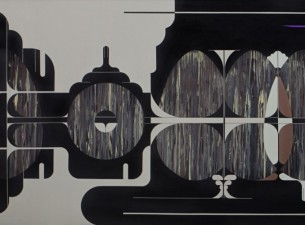
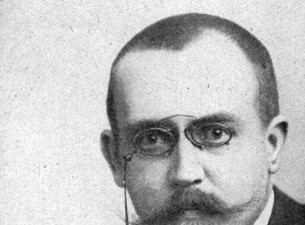
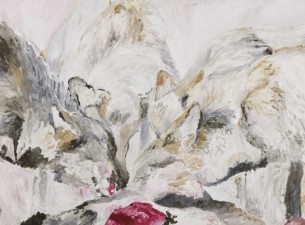
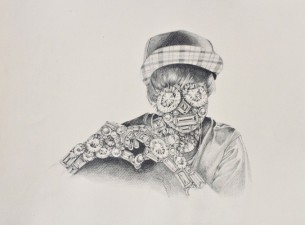
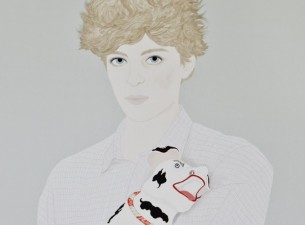
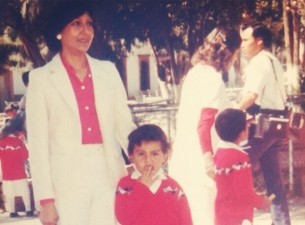
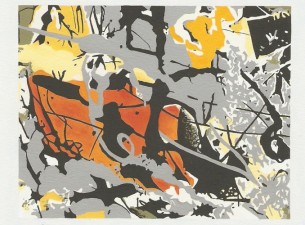
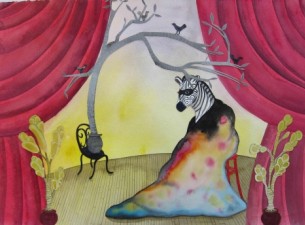


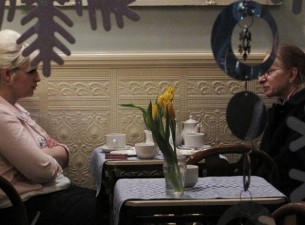

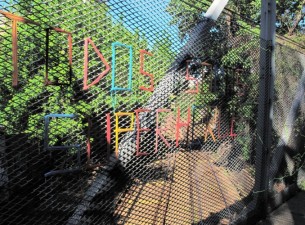
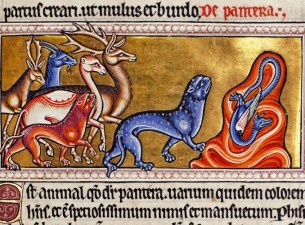
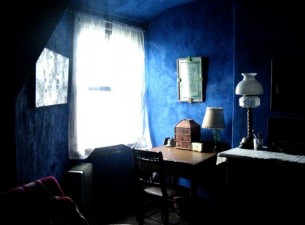


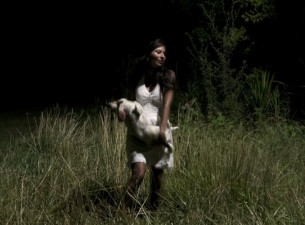

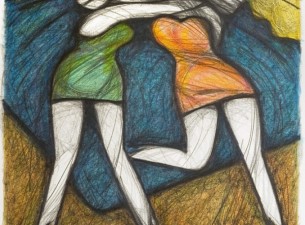




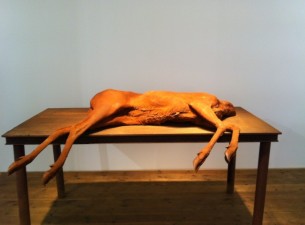

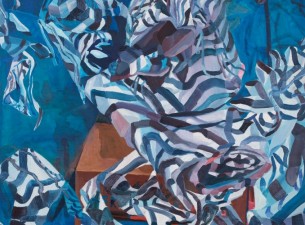






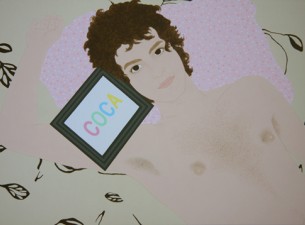
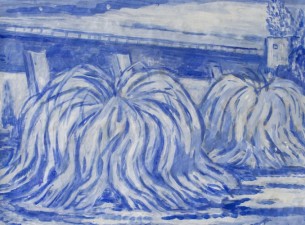

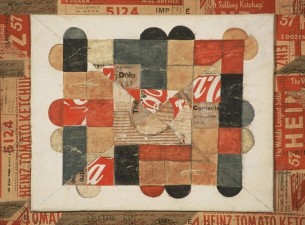
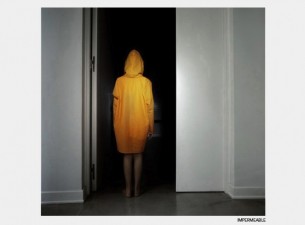

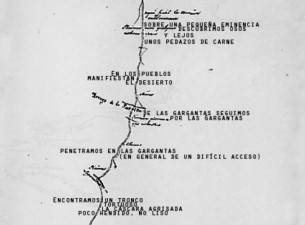
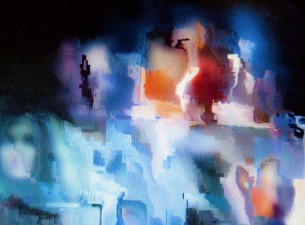
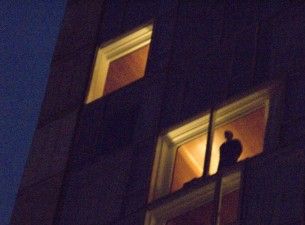
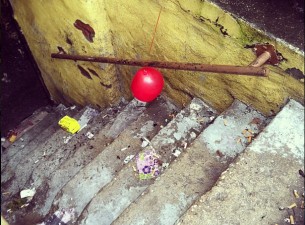
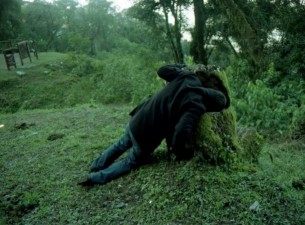
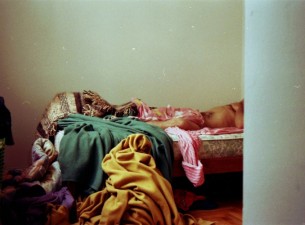

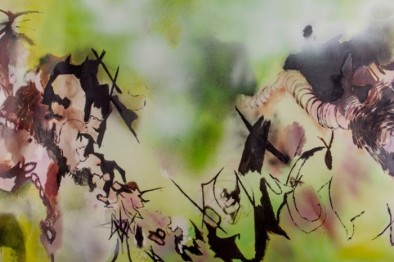


Nema komentara:
Objavi komentar